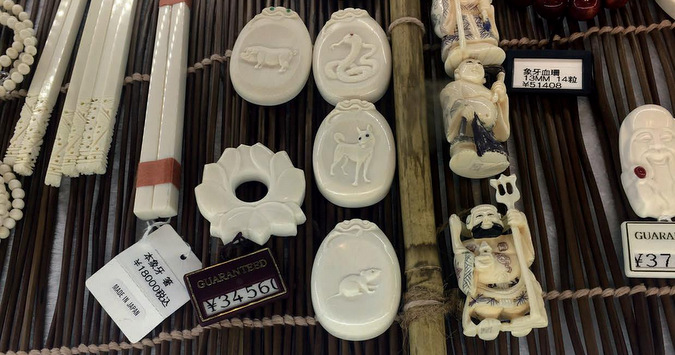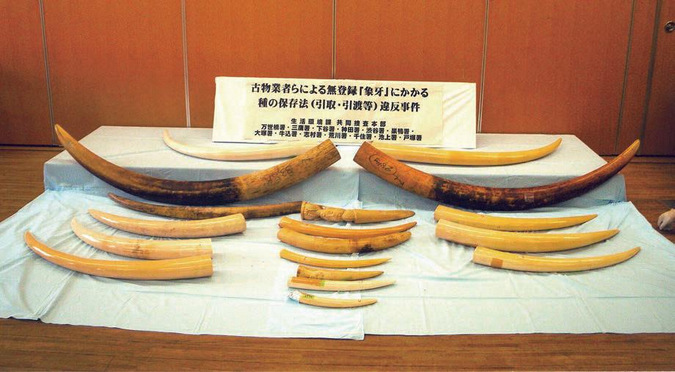
Japan’s poorly regulated domestic ivory market and efficient transnational criminal networks are among the factors driving the illegal export of ivory products to other countries. Due to this continued absence of effective regulation and law enforcement, two major conservation groups are calling for the closure of Japan’s domestic ivory market – in accordance with CITES.
In a report released on Wednesday by TRAFFIC and WWF, researches found that ivory products have become increasingly popular among antique and tourist markets where unregistered ivory is bought for illegal exports.
With China announcing that it would shut down all ivory trade by the end of this year, concerns have been raised that Japan’s failure to prevent illegal ivory exports will undermine China’s prospective ban and the efforts to end the global trafficking of elephant tusks.
Surveys were conducted in physical ivory markets, and physical and online auction platforms between May and September 2017, while antique dealers as buyers of privately owned ivory were also interviewed during the same period.
Between 2011 and 2016, a total of 2.42 tonnes of ivory was illegally exported from Japan, most of which was intercepted going to China.

The Convention on International Trade in Endangered Species of Wild Fauna and Flora (CITES) bans the international trade in ivory to protect endangered African elephants and has called for the closure of domestic ivory markets in all member states.
Japan, however, says ivory products traded domestically were not acquired illegally. The government has approved a proposal this year to tighten registration requirements and inspections for more than 8,000 ivory retailers and manufacturers in the country. However, many campaigners feel that this is inadequate and that stricter measures should be put in place.
“Our findings show that without doubt, Japan’s largely unregulated domestic ivory market is contributing to illegal trade – a condition considered by Parties to CITES to warrant much stricter regulation and even the closure of the market,” said Tomomi Kitade, one of the authors of the report.
“It is imperative that Japan’s role within international illegal ivory trade be recognised, and urgent steps are taken to address the on-going illegal export and the regulatory gaps that are facilitating such criminal activity,” he added.
Online sites, such as Yahoo! Japan, are one of the major contributors in the purchasing of worked ivory products, with a recent seizure made by China’s Customs authority in 2016 involving 1,639 pieces of worked ivory and carved tusks.
With this substantial evidence, the report has urged the Japanese government to raise public awareness about the controls on illegal ivory and to tighten up on the controls at customs to prevent items such as ivory hanko stamps and figurines from leaving the country. It goes on to say that with China shutting down its legal ivory trade on 31st December, Japan and other key countries should follow suit.
To comment on this story: Login (or sign up) to our app here - it's a troll-free safe place 🙂.![]()








